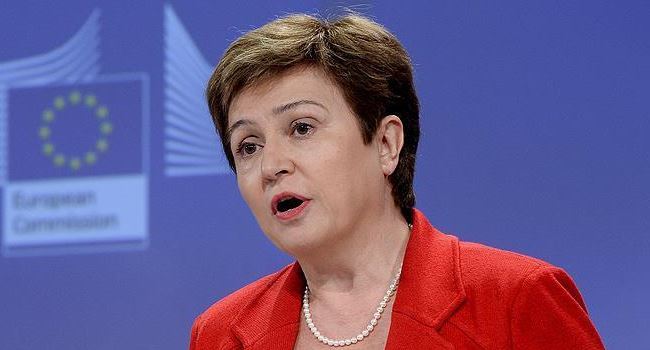Business
IMF downgrades Nigeria’s growth projection, demands clear policy

The International Monetary Fund (IMF) has downgraded Nigeria’s economic growth projection for 2022 to 3.2 percent.
The organisation made this known in its World Economic Outlook (WEO) for October 2022, titled: “Countering the Cost-of-Living Crisis,” released on Tuesday.
The IMF had in July projected Nigeria’s economy to grow by 3.4 percent this year.
But the Bretton Wood institution downgraded the projection by -0.2 percent on Tuesday.
The IMF also downgraded the growth projection for sub-Saharan Africa from 3.8 percent to 3.6 percent.
The report read: “In sub-Saharan Africa, the growth outlook is slightly weaker than predicted in July, with a decline from 4.7 percent in 2021 to 3.6 percent and 3.7 percent in 2022 and 2023, respectively — downward revisions of 0.2 percentage points and 0.3 percentage points, respectively.”
“This weaker outlook reflects lower trading partner growth, tighter financial and monetary conditions, and a negative shift in the commodity terms of trade.”
READ ALSO: IMF ranks Nigeria 11th in Sub-Saharan Africa with highest private savings
The IMF also advised Nigeria and other emerging and frontier markets to provide clear communication about their policy as well as reduce debt risk in its October 2022 Global Financial Stability report titled: “Financial Stability in the New High-Inflation Environment.”
“Clear communication about policy decisions, commitment to price stability, and the need for further tightening will be crucial to preserve credibility and avoid market volatility.
“Exchange rate flexibility helps countries adjust to the differential pace of monetary policy tightening across countries. In cases where exchange rate movements impede the central bank’s monetary transmission mechanism and/or generate broader financial stability risks, foreign exchange intervention can be deployed. Such interventions should be part of an integrated approach to addressing vulnerabilities as laid out in the IMF’s Integrated Policy Framework.
“Emerging and frontier markets should reduce debt risk through early engagement with creditors, multilateral cooperation, and international support. For those in distress, bilateral and private sector creditors should coordinate on preemptive restructuring to avoid costly defaults and prolonged loss of market access. Where applicable, the group of Twenty Common Framework should be used,” it stated.
Join the conversation
Support Ripples Nigeria, hold up solutions journalism
Balanced, fearless journalism driven by data comes at huge financial costs.
As a media platform, we hold leadership accountable and will not trade the right to press freedom and free speech for a piece of cake.
If you like what we do, and are ready to uphold solutions journalism, kindly donate to the Ripples Nigeria cause.
Your support would help to ensure that citizens and institutions continue to have free access to credible and reliable information for societal development.
























